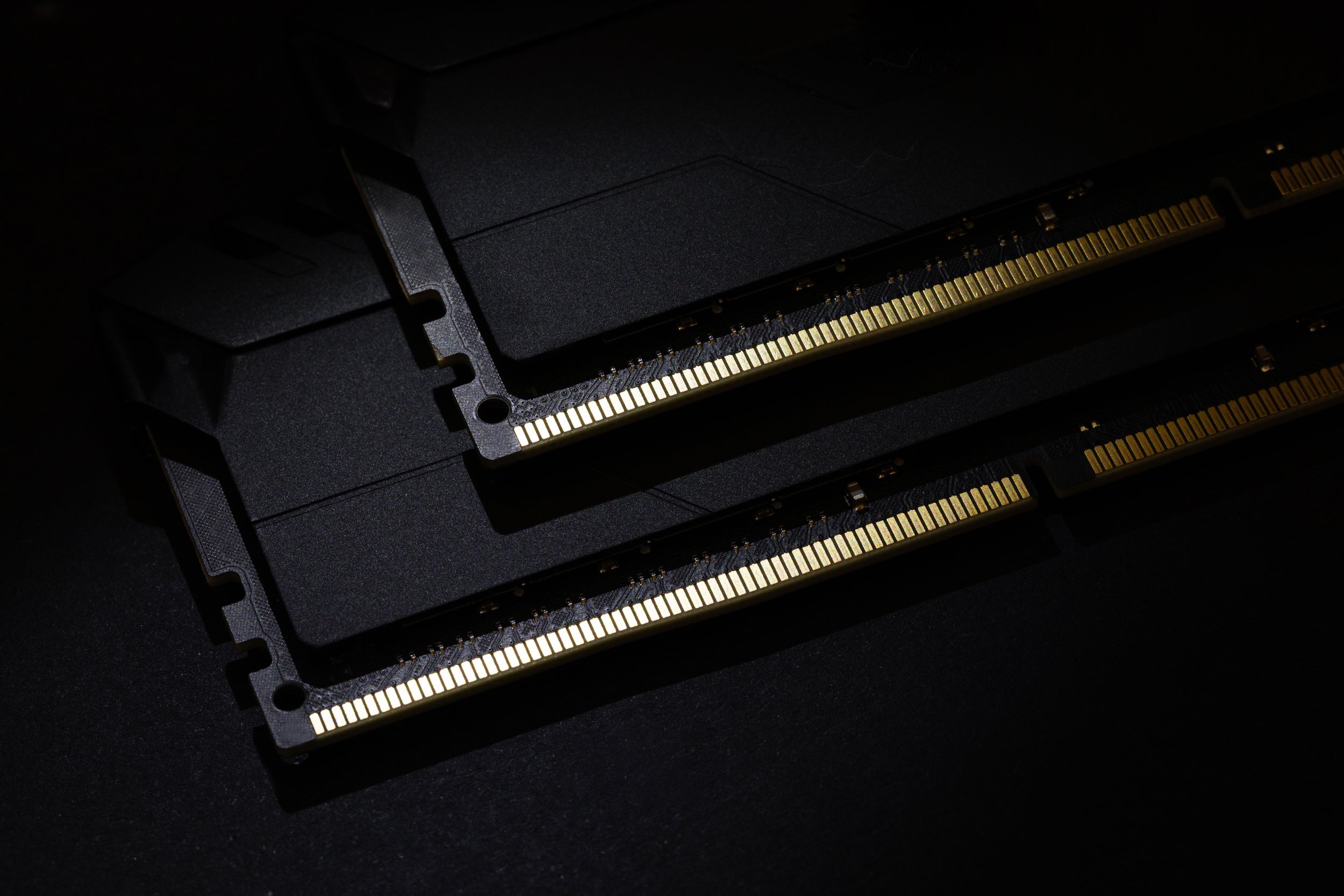DDR5 RAM vs DDR4 for Gaming: Do You Need To Upgrade?
When it comes to gaming, many of us just want to get to the fun part: playing the game. Unfortunately, jumping in without proper gear can often leave you with a frustrating experience full of lag and other issues.
PC gamers can be the most vulnerable of all, since building your system puts the weight of choosing the right tools in your hands.
Thankfully, you don’t need to be a computer scientist to set yourself up for success. With a little help, you can easily identify which parts of your PC affect lag the most and make sure they all stay up to spec.
Today, WTFast brings you this helpful guide to RAM, including what it is, why it matters for lag-free gaming, and what kind is best for you. We’re also talking about other potential causes of lag — in case RAM isn’t the source of your issue— and how to fix them.
Without further ado, let’s get into it!
What Is RAM?
RAM is an acronym standing for Random Access Memory. It’s often simply referred to as your computer’s memory.
In layman’s terms, it’s the part of your computer that determines how much your PC can handle at once.
To break it down in a little more detail, RAM is the place where the various applications running on your computer can store and access information. It’s a short-term memory component, not to be confused with your storage components, which act as a place to indefinitely keep files.
Think of RAM as counter space in the kitchen. If you’re cooking dinner with a main dish and a few sides, you’ll need more counter space to prepare everything. Making a single, simple dish isn’t going to require as much counter space in most cases.
Of course, you’re only going to use the counter space while cooking. Once the dish is done, you’ll eat it or store it in the fridge. Any remaining ingredients will be put away in the pantry.
RAM works similarly as a temporary space to hold various ingredients and workstations while your computer chops, dices, and mixes them up. Beyond allowing your computer to handle more tasks, RAM contributes to the speed in which your computer can access the tasks it’s performing.
The speed or “frequency” of your RAM is as important — if not more important — than the size. This means there are always multiple factors to consider when choosing which RAM to install.
Why Does RAM Matter?
Now that we know what RAM does, we can understand why it’s so important to your computer’s performance.
The more RAM you have and the greater its frequency, the more your computer can do at once efficiently. Likewise, insufficient RAM will leave your computer laggy and overworked.
The quantity of tasks isn’t the only factor to keep in mind. The more complex something is, the more memory it uses.
This is especially prevalent in gaming. In general, video games take more RAM than other applications. Bigger games such as 3D titles with high-quality graphics are going to pack the biggest punch.
If you want to run the latest game on Steam while video chatting on Discord, watching a Twitch stream on your second monitor, and processing footage for an upcoming stream, you’re going to need some serious RAM capacity.
If you’re less of a multitasker and just want to play a game or work on some homework while streaming music, you won’t need as much in the memory department.
Ultimately, there is no real detriment to your computer if you have more RAM than you need. The more the merrier.
However, just like a bigger counter won’t hurt a cook but may hurt their budget, the most efficient PC build is usually best served by knowing what you need and sticking close to it.
What Type of RAM Do I Need?
So, what type of RAM should you add to your gaming computer? The first thing you’ll see when shopping is the sizes on offer.
8GB, 16GB, and 32GB are the most common options. 16GB is usually more than enough for gaming. Often 8GB will do the job as well, so you might consider 8GB if your budget is tight and you don’t need to multitask complex programs.
32GB is generally only needed if you’re processing footage or running a similar program that’s especially demanding, but most gaming won’t require this much RAM.
With so few options and relatively minor differences between them, the size of your RAM should be a straightforward choice. When it comes to speed, the decision can be a bit more engaging — if you’re so inclined.
DDR4 vs DDR5
DDR memory kits (standing for Double Data Rate) are the most common type of RAM you’ll see, and they come in various “generations.”
DDR4 kits have been standard for a few years — replacing DDR2 and DDR3 — but with DDR5 memory technologies emerging today, it can be hard to know whether you should upgrade next year.
The DDR5 SDRAM may have new features like improvements to voltage regulation, power management, and a higher maximum GB limit, but is a DDR5 DIMM really better than DDR4 kits using an extreme memory profile (XMP)?
The short version is that while DDR5 kits have some upsides (like on-die ECC, a burst length up to 16 bytes, and a doubled burst chop), rigorous tests have actually shown that the technology is often slower than DDR4 memory chips. This depends on your build and won’t be super noticeable in many real world cases. Also, not all CPUs, processors, and motherboards support DDR5, which is another factor to keep in mind.
Those who wish to control their exact latency will see a difference in the numbers. Still, unless you’re looking closely, you’ll find that the real-world performance of both DDR4 and DDR5 modules will be able to handle your gaming.
Both modules need differential feedback equalization (DFE) options for optimal reception, but the graphics card remains a more important consideration when trying to get those gaming gains.
What’s more important is choosing a model with a good latency rating. High-performance RAM can achieve a low latency around or below 20, so you can use that as your benchmark if achieving the best performance is important to you.
Why Do I Have Lag With Plenty of RAM?
While insufficient RAM can leave your computer programs lagging, there are plenty of other causes that could cause lag in your gaming.
If you’re here because you’re trying to find out why your game is lagging and how to fix it, consider these troubleshooting steps before you shell out for a brand new RAM that might not make a significant difference.
Hardware Lag
RAM isn’t the only part of your hardware that could lead to lag. Overall, it’s important to compare your computer to the minimum and recommended system requirements for whatever game you are playing. If you are short in one area, upgrading RAM won’t mean anything until you correct the other issue.
Make sure also that your graphics drivers are up to spec and your cooling setup is sufficient.
Network Lag
Even the most powerful computers can still experience lag during online gaming. That’s because the most common cause of lag in online gaming is network connectivity issues, specifically high latency.
This kind of lag can look diverse — including rubberbanding, stutter, or just FPS drops — but it’s always frustrating and often gamebreaking.
Every gamer knows how a potential win can turn into an uncontrollable loss simply due to poorly timed lag. However, there are weapons you can use in the fight against network lag.
First, switch to a wired connection if possible. Wireless connections are relatively unstable and slow compared to ethernet.
Next, cut out background tasks that may be using too much bandwidth. Just like your RAM determines how much local data your computer can process at once, your network has a bandwidth that determines how much network data can go back and forth at a given time.
In other words, if you’re watching a Twitch stream, video calling, and downloading some game updates all while online gaming, you might just be overworking your bandwidth.
The Easiest Network Lag Solution
If you’ve eliminated hardware lag as a possibility and you’re left with network lag, the easiest, one-stop-shop solution is the secret weapon against lag: our WTFast GPN.
Like a VPN, the Gamer’s Private Network reroutes your connection to your gaming server. However, while a VPN focuses only on encrypting your data, our GPN is all about optimizing your connection speed and stability.
Remember that bandwidth we talked about? You can think of it as a highway. On a public road, there could be tons of cars competing for each lane, and you’ll get bogged down in traffic. Likewise, your gaming data could just be slow because it’s competing for traffic.
WTFast’s GPN is the autobahn of the internet. Your data can travel at full speed on its own private road. Our intuitive AI manages the fastest traceroute for your data and only sends essential gameplay down it, so your game is as quick, smooth, and stable as possible.
Conclusion
Ensuring that you have sufficient RAM is a crucial step to making sure your computer can handle the programs and games you want to run. However, upgrading to the latest and greatest DDR may not be necessary or best for your system, depending on your budget and needs. If you're trying to find your zen — and win a few rounds, while you're at it — there are easier ways to reduce gaming lag.
If you’re getting lag in online gaming, simply use our WTFast GPN instead! It’s the fastest and easiest path to lag-free gaming.
Sources:
What is Random Access Memory (RAM)? | Techopedia


